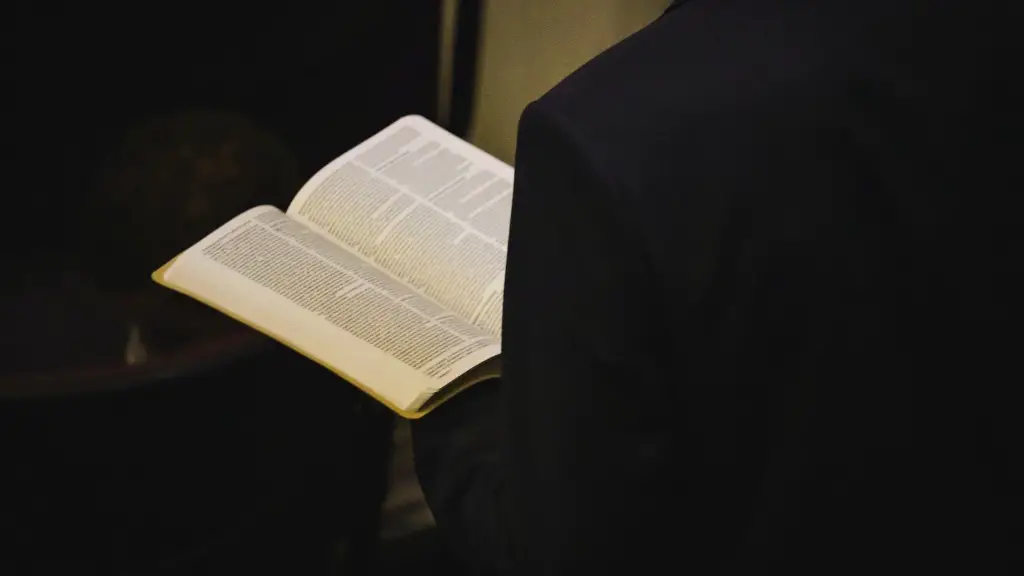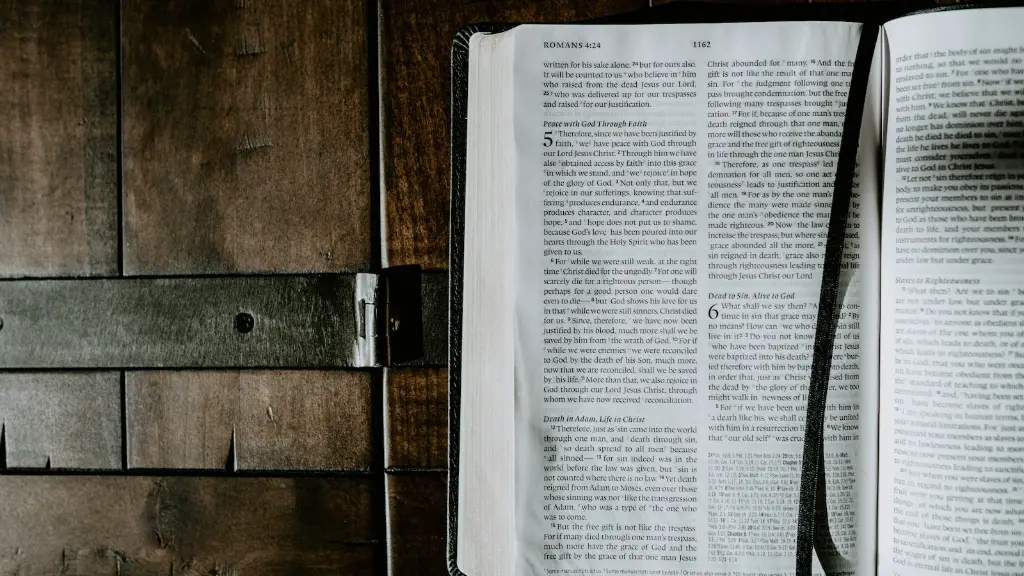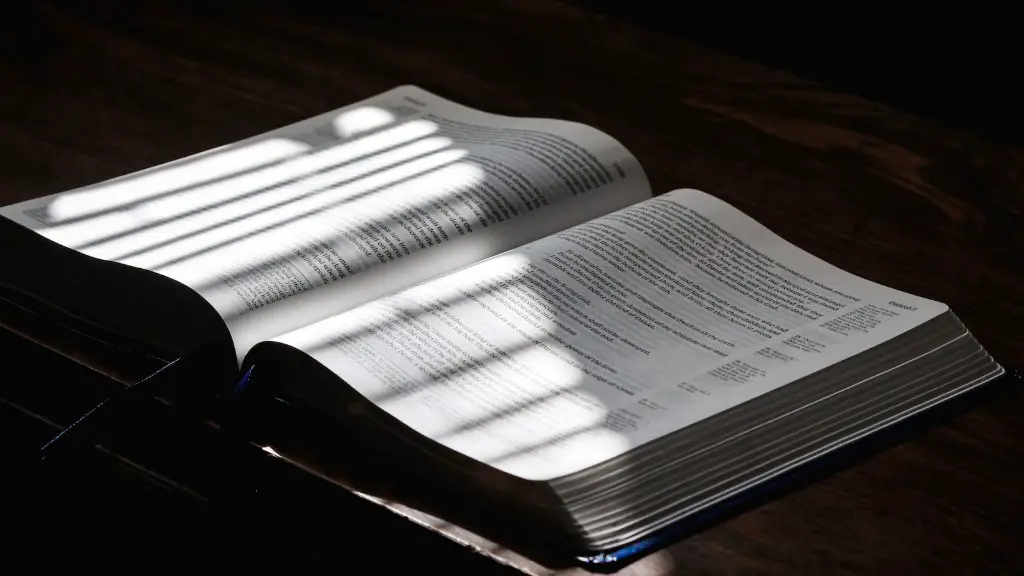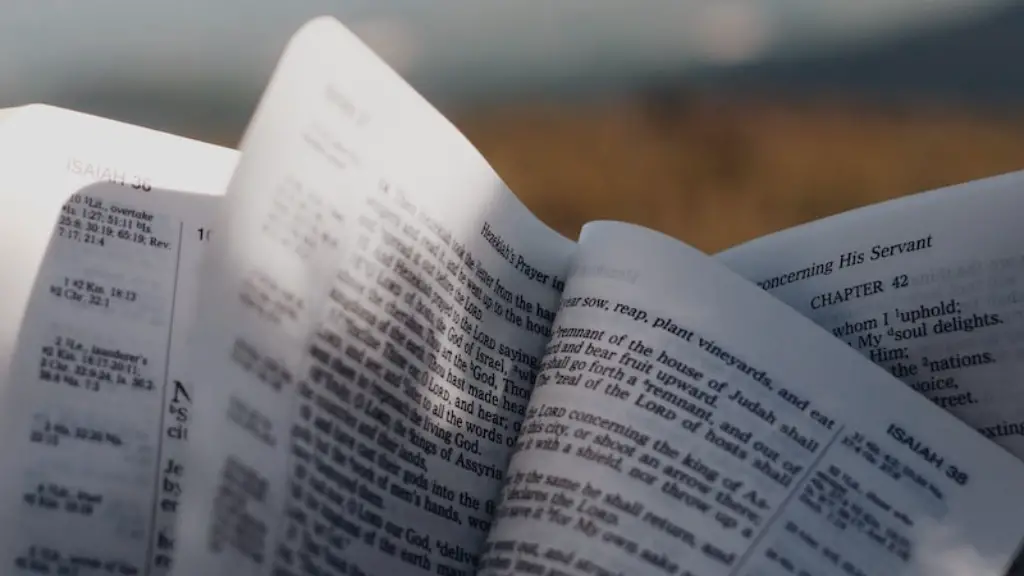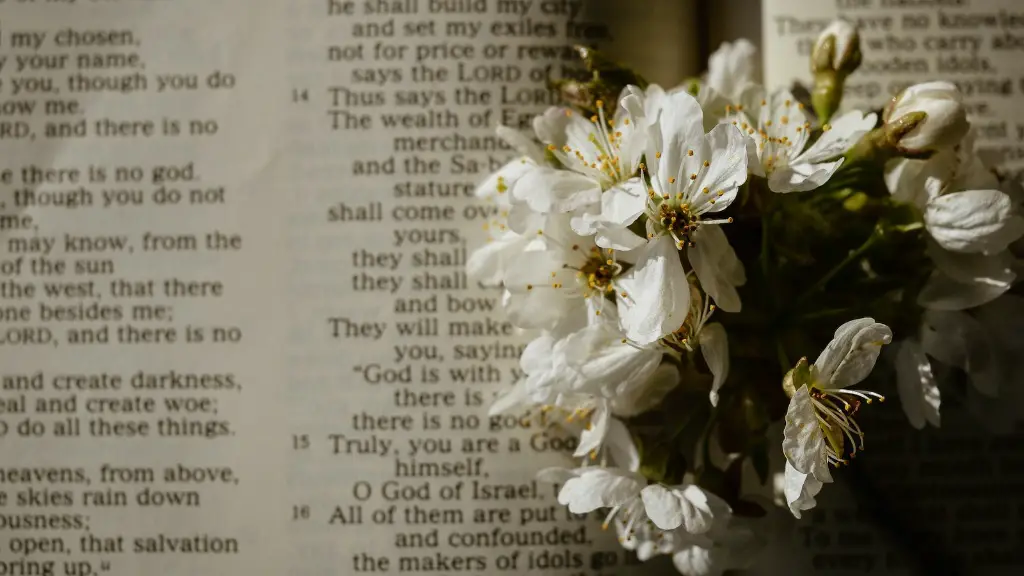The Bible is silent on the topic of voting, but it does offer guidance on how Christians should participate in government. The Bible teaches that Christians are to be “subject to rulers and authorities” (Romans 13:1) and to “render unto Caesar the things that are Caesar’s” (Matthew 22:21). This indicates that Christians are to respect and obey the government, but also torecognize that the government is not supreme. Christians are not to put their trust in government, but in God. When it comes to voting, Christians should prayerfully consider who to vote for, seeking God’s guidance. Ultimately, we should vote for those who will best uphold Christian values and defend the rights of Christians.
There is no direct answer to this question in the Bible. However, there are principles that can be drawn from Scripture that can be applied to the political process and voting. These include obeying the authorities that God has placed over us (Romans 13:1-7), being salt and light in the world (Matthew 5:13-16), and praying for those in positions of authority (1 Timothy 2:1-2). Ultimately, as Christians, we are to be led by the Spirit of God in everything we do (Proverbs 3:5-6). This means that we should seek God’s wisdom and guidance when it comes to politics and voting.
What does the Bible say about politics and elections?
The Bible is clear that God calls us to participate in the political process. In the Old Testament, we see God’s people engage in the political process, both in terms of obeying the governing authorities (Romans 13:1–7) and in terms of influencing the government for good (Exodus 18:21). In the New Testament, we see Jesus himself engaging in the political process, even though he was not a politician (Luke 12:13–14).
Christians should participate in politics because we are called to love our neighbor (Mark 12:31). When we engage in the political process, we are advocating for the common good. We are also called to be wise as serpents and innocent as doves (Matthew 10:16). This means that we should be discerning and strategic in our political engagement.
So, as Christians, we should participate in politics. We should do so because we are called to love our neighbor and because we want to see the flourishing of our world. But we should also do so with wisdom and discernment.
The state’s most fundamental role is to protect citizens from the sinful conduct of their neighbors. The Bible indicates that government is to help preserve order–people’s ability to live “peaceful and quiet lives,” in Paul’s words–in a sinful world. In other words, the state is to protect its citizens from those who would do them harm. This is the most basic role of government, and it is one that is essential to a well-ordered society.
What Scripture talks about electing leaders
It is our responsibility as citizens to vote, but we must remember that it is God who ultimately sets up leaders and deposes them. We should ask God for wisdom and knowledge regarding elections and voting.
In order to make sure of your calling and election, you need to be diligent in your efforts. You need to do things that will help you stay on track and not fall off.
What is the biblical concept of politics?
The Bible speaks to politics indirectly in several places. Romans 13:1 and 1 Peter 2:13-14 both say that Christians should follow the authority of government, as government authority is instituted by the authority of God. This principle can be applied to voting, running for office, and other political involvement. Christians should be good citizens, but their ultimate loyalty is to God, not to any political party or government.
The law prohibits political campaign activity by charities and churches by defining a 501(c)(3) organization as one “which does not participate in, or intervene in (including the publishing or distributing of statements), any political campaign on behalf of (or in opposition to) any candidate for public office.” This means that charities and churches cannot engage in any political campaign activity, including endorsing or opposing candidates, distributing campaign materials, or making donations to campaigns.
The Bible tells us in Romans 13:1 that we are to submit to the governing authorities, because they have been established by God. This is a clear directive from Scripture, and we must obey it. However, we must also be careful to not blindly follow the authorities, but to always be discerning and pray for wisdom.
God used Moses to lead the Israelites out of slavery and bring them to Mount Sinai, where God gave them a set of laws. These laws formed the basis for a new government. That government was a theocracy. In other words, religion ran the government, and the laws were based on loyalty to the God of Israel.
What does the Bible say about an oppressive government
It is clear from this passage that those in positions of authority have been put there by God, and therefore to resist them is to resist God himself. This is a powerful reminder that we are to submit to those in authority over us, even if we do not agree with everything they do. This does not mean that we should blindly follow them, but rather that we should respect their authority and seek to honor God in everything we do.
In the narrow sense, predestined refers to the election of those who will be saved. This is in line with Romans 8:29-30 and Ephesians 1:5, 11. In the broader sense, predestine refers to all things that happen, including the crucifixion of Christ. This is in line with Acts 2:23 and 4:28.
What does the Bible say about leaders in power?
The book of Romans is a great book for Christians to study because it contains so many important lessons for living a Christ-like life. One of those lessons is found in Romans 13:1, which teaches us that those who are in positions of power may have been allowed there by God for a specific purpose. When we pray for them, we are praying that God’s will be done. And while we pray, it is important to remember that our leaders face spiritual battles and opposition that they may not be aware of.
When Moses needed additional help, God told him to select capable men from the people who were honest and who feared God. These men were to be appointed as officials over the people. This would help to ensure that the people were being governed properly and that they had someone to look up to and respect.
What does the KJV Bible say about making your calling and election sure
It is important to make your calling and election sure by doing good works. If you do these things, you will never fall and will be admitted into the everlasting kingdom of our Lord and Savior Jesus Christ.
These people are proud and arrogant, daring even to scoff at supernatural beings without so much as trembling. This is a dangerous attitude to have, and it will ultimately lead to their downfall.
What does Matthew 5.9 say?
This is a powerful and important message from the Bible. It speaks to the importance of peacemaking and how it can positively impact our lives and those around us. Peacemaking is a noble pursuit and one that should be encouraged. It is a sign of strength and compassion, two qualities that we should all aspire to have.
The government should not be in the hands of the church, as this will always lead to bad consequences for the church. Our freedoms can only be limited, not eliminated, and we must participate in politics in order to protect our freedoms.
What is political theory according to David
Held’s definition of political theory is quite broad, encompassing everything from grand philosophical visions of the ideal society to more specific ideas about the role of government in a given context. Political theory is necessarily an ongoing conversation, with new voices and perspectives constantly being added to the mix. It is a complex and dynamic field, but one that is essential to our understanding of the political world.
Papal supremacy is the doctrine of the Catholic Church which holds that the Pope, as the head of the Church, is the supreme authority over all other earthly authorities. This doctrine was develope in the 11th century, and since then the Pope has had a great deal of influence over secular rulers. In some cases, the Pope has even been able to determine who will be the king or queen of a particular region. Additionally, the Pope has the authority to raise an army and go to war if necessary.
Final Words
The Bible does not explicitly address the issue of politics or voting, but it does have a lot to say about how Christians should live their lives and treat others. Christians are called to be good citizens (1 Peter 2:17) and to be faithful in all they do (Colossians 3:23). When it comes to voting, Christians should prayerfully consider who to vote for, looking for candidates who will uphold Biblical values and who will make decisions that will benefit the most people.
There isn’t a whole lot in the Bible about voting or politics, but there are a few things that can be gleaned from what is there. Basically, Christians are called to be good citizens, to obey the governing authorities, and to pray for those in authority. As far as voting goes, Christians should vote according to their conscience, being sure to vote for candidates who will uphold Christian values.
